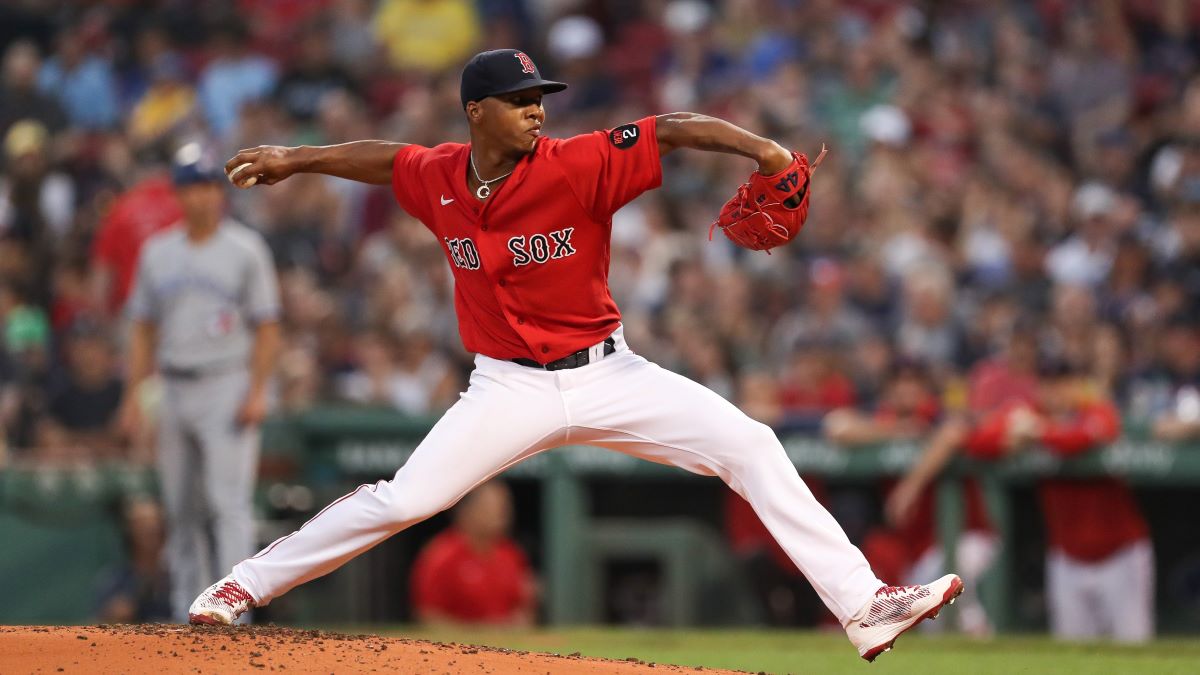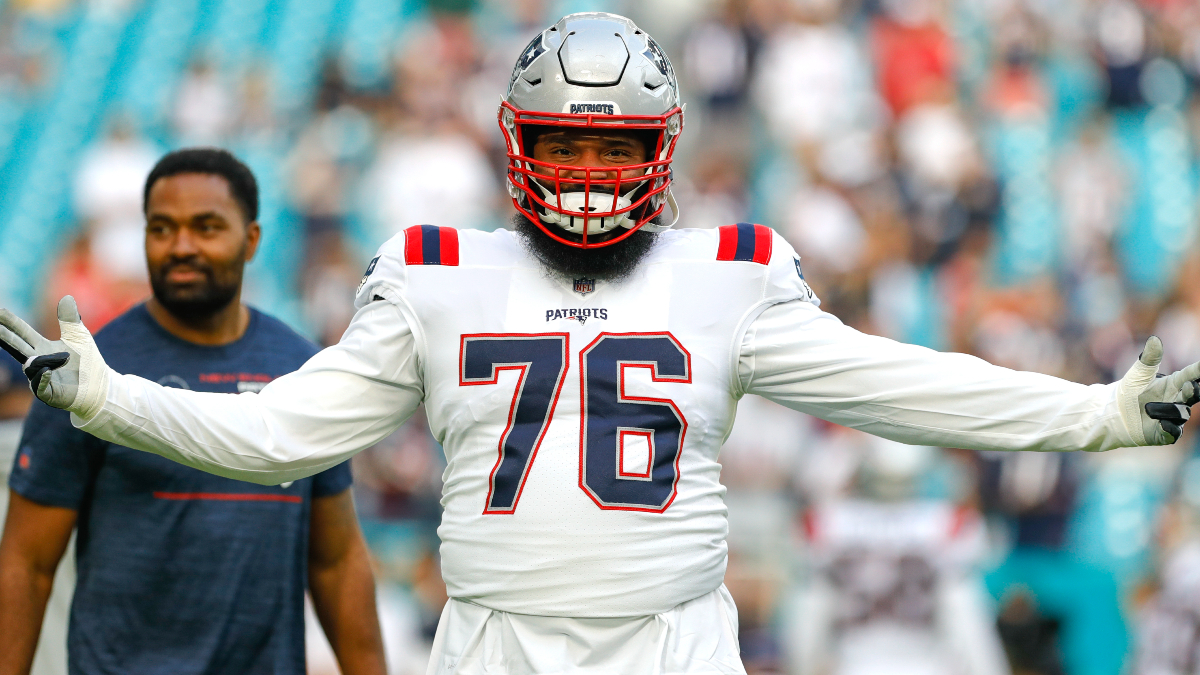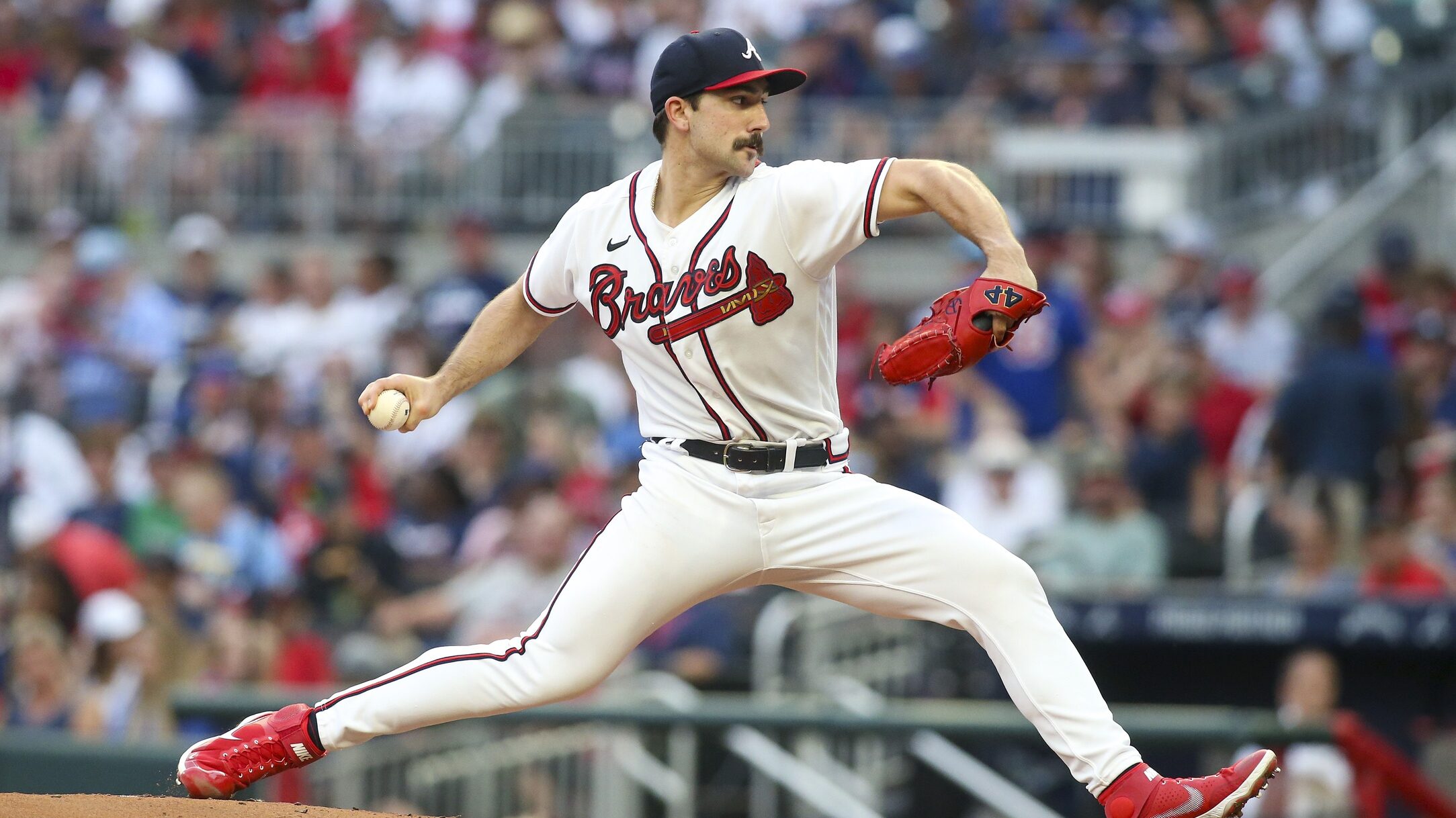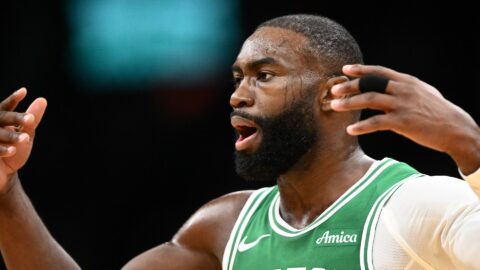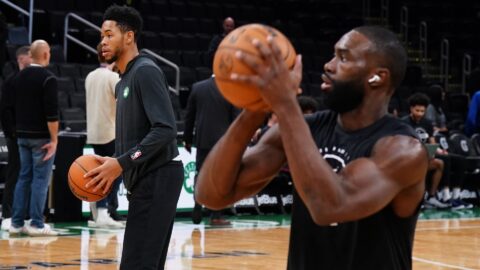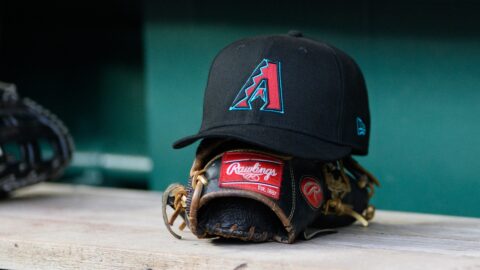Could the Boston Red Sox lock up superstars long term without ever having to deal with the stress of trying to sign them at their peak?
The newest trend in Major League Baseball has been to throw life-changing money at young players before they hit their peak or come close to reaching free agency. The team adds inherent risk in not getting a long look at these young players and forgoes both team-friendly pre-arbitration and arbitration years, while the player takes guaranteed money over the chance to earn a massive contract down the line.
The developing concept was put to use Friday with Seattle Mariners center fielder Julio Rodriguez agreeing to a 14-year contract with $210 million guaranteed and the ability to grow "well over $400 million," according to ESPN's Jeff Passan.
Rodriguez is just 108 games into his rookie season, but the Mariners saw enough to break the bank to keep the 21-year-old star in Seattle for what could be his whole career.
The deal comes just weeks after the Atlanta Braves locked up Michael Harris II to a similarly structured contract, for less money. Harris had even less big league service time when he inked his deal.
Teams like the Braves have often done this over the last few years, where they sign former top prospects to high-risk, high-reward deals once they think they've seen enough. It's risky but can result in players like superstar outfielder Ronald Acuña Jr. being locked up from their ages-25-30 seasons at just $17 million a year.
Should the Boston Red Sox adopt a similar model for their young stars?
Had former Red Sox general manager Dave Dombrowski offered a similarly structured deal to Rafael Devers in 2018, the team's biggest offseason question would have been dealt with years ago. It came as no surprise that Devers excelled into a superstar after being a top prospect and showing his ability at each level, so why not take a shot?
It's not a completely foreign subject to the Red Sox, as chief baseball officer Chaim Bloom already used the model this season. Boston extended pitcher Garrett Whitlock to a four-year, $18.75 million contract during the first series of the 2022 season, with club options for 2027 and 2028 valued at $8.25 million and $10.5 million, respectively. Based on his current career arc, that move tends to favor the Red Sox greatly.
Who else could the Red Sox consider doing this with?
The current roster does not boast many young former or current top prospects, though Brayan Bello could fit the mold with a few more starts at the major league level.
The top candidate in the near future would be first baseman Triston Casas, who could realistically prove everything the organization needs to see in his first few months in Boston, whenever that time comes.
There are other standouts expected to make their MLB debuts during the 2023 season who could be candidates for early extensions, as well. Ceddanne Rafaela's stock grows seemingly every day. He now is the Red Sox's No. 4 prospect on MLB Pipeline and is not far away from a call up.
Here are the rest of MLB Pipelines's Red Sox prospects projected to receive a promotion to Boston in 2023: second baseman Nick Yorke (No. 5), right-handed pitcher Bryan Mata (No. 7), left-handed pitcher Brandon Walter (No. 8), right-handed pitcher Thaddeus Ward (No. 16), utility man Enmanuel Valdez (No. 19), infielder Christian Koss (No. 21) and outfielder Wilyer Abreu (No. 24).
Out of that grouping, Yorke and Valdez presumably would have the best chances to earn a near-immediate extension, though both carry more risk than those who have received similar deals in recent years.
While the move should be reserved for the elite of the elite prospects, it's not a bad idea to follow the ideology that helped the Braves earn a World Series ring in 2021.

